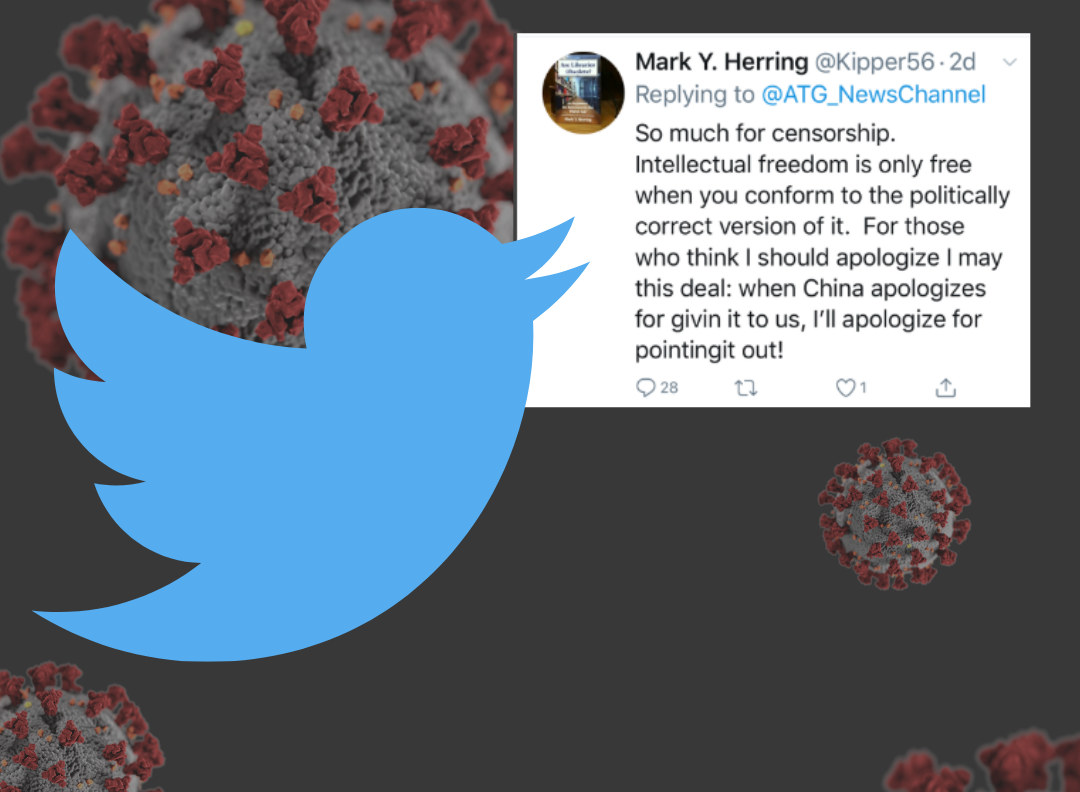A Winthrop dean wrote an article about the pandemic which was later taken down due to the language used.
Mark Herring, the soon to be retired dean of the Dacus Library and Pettus Archives, posted an article titled “The Wuhan Wilding,” on May 11 for the website Against the Grain reflecting on his opinions and experiences while watching the pandemic unfold. Shortly after it was posted, one of the admins of the website deleted Herring’s article because the language used could be considered ethnically offensive.
Herring defended his piece and said removing it was a blow against “intellectual freedom.”
“Wuhan… is yet another sad chapter about a country in which its inhabitants… could not find enough to eat and so ate animals that the rest of the civilized world exterminated,” he wrote. “Early on, medical organizations promised that the Wuhan virus (Kung Flu as a friend of mine dubbed it) could not be transmitted from human-to-human, but those same organizations by early March declared it the horrific and highly contagious pandemic we are all now in.”
Herring later wrote in his article that he admires health care workers and the work they have done throughout the pandemic but added that, “They see what this Wuhan Wilding is doing to people every day and yet they still go back to work.”
“The trivial things appear to be less and less what began this horror and more and more what our daily lives were caught up in,” he wrote. “We can only hope… that we have learned better how to laugh… love.”
11 people commented on his article before it was removed from the site.
“The biggest takeaway from this article – the author uses racist, xenophobic language to express their views (what even are their views), and ATG thought this was worthy of publishing,” Max Bowman, a guest on the website, commented. “Aside from that, what’s the message? What are we supposed to glean from this? It’s galling that the last line of this piece references hope when the previous paragraphs do nothing to inspire it.”
ATG is a print and online publication where publishers, vendors and librarians can write about books, library issues and columns.
Herring explained the underlying message he wanted readers to take away from his article.
“I thought I would write something about that and how a crisis helps to bring out the best and the worst in us and I mentioned some examples,” he said. “Perhaps this would give us some time to think about what really matters most in life and helps us to be better. That was the theme of the article is that… you are in this crisis, what is it going to teach you, what good is going to come out of it.”
Herring took to Twitter to express his opinion on the comments and dismay with his article being taken down.
“So much for censorship and intellectual freedom. The idea here is that if you write something some people don’t like, you can censor it if it doesn’t conform to the politically correct version of intellectual freedom,” he tweeted.
In response to Herring’s article and tweet, a mass email was sent to Winthrop faculty and staff from Provost Adrienne McCormick.
“It is incumbent upon an academic institution to clarify when a member of the community makes statements that do not represent the university, at the same time that we recognize the equal weight of our commitments to academic freedom and inclusive excellence,” she wrote. “Recent remarks by a member of our academic community—in a now-deleted online column and on Twitter—included comments that may be viewed as ethnically offensive relating to the COVID-19 virus. These remarks do not reflect the spirit of Winthrop’s mission and do not represent the views of Winthrop University.”
Along with this, Herring’s article was deleted from the Digital Commons, Winthrop’s digital repository.
“We support academic freedom. We support speech rights but… it’s important you distinguish when you’re speaking for yourself and when you’re speaking in your role as an academic leader,” McCormick said in an interview. “What I wanted to make clear in that email was Dean Herring was not speaking for the university in that publication and it could have been perceived as ethnically offensive. As an institution that would run counter to our mission and the work that we do here to ensure we work against exclusive… thoughts.”
Herring said that when his article was deleted it violated his intellectual freedom.
“My response was we have a diversity of people. We don’t have a diversity of ideas because we are trying not to let this idea out. It has to do with intellectual freedom and censorship because if 18 people can complain about something and have it removed then no one’s ideas are going to get out,” Herring said. “If that can shut down something then that’s a problem with being able to communicate with one another about ideas that are different and that we don’t particularly like. There is nothing in the article that says something negative about the Chinese people, it does say something negative about Chinese government.”
After working for 21 years at Winthrop Herring will retire in June. Kaetrena Kendrick, a 1995 Winthrop graduate , has been announced as the new dean of Winthrop’s Dacus Library and Pettus Archives.
“Perhaps this would give us some time to think about what really matters most in life and helps us to be better. That is how the article concluded,” Herring said. “That was the theme of the article… you are in this crisis, what is it going to teach you [and] what good is going to come out of it.”




